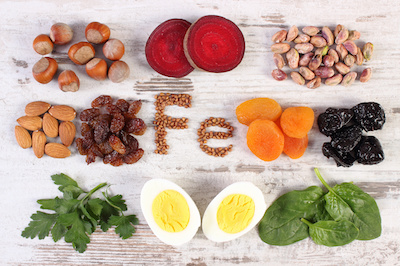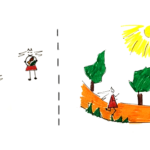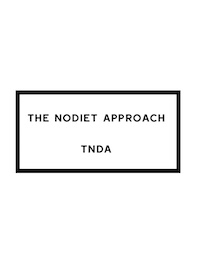The Impact of Iron on health and wellbeing by Joe Thomas
As a graduate in Biological and Medicinal Chemistry from University of Exeter in the UK, Joe Thomas dedicated a lot of time in researching on the importance of micronutrients for a healthy body. He quotes: “An enzyme or protein in the body is a machine that performs a job. If you have a component missing, it won’t work properly resulting in many diseases.” His aim is to raise awareness on scientific topics by writing articles easy to read and understand.
Here is his article on the Impact of Iron on health and Wellbeing :
Iron is not only a building block it is also an essential mineral for the human body. It is essential for our body’s wellbeing.
In the periodic table iron is known by the symbol Fe and it’s the fourth most common element in Earth’s crust. Iron has played an essential role in industrialisation and it is estimated that 90% of all refined metal is iron.
Let’s identify some key questions which will highlight how vital iron is for our survival.
Why Do We Need Iron in Our Diet?
Iron is an essential component of hemoglobin, which is present in our red blood cells and is responsible for transporting oxygen from the lungs to the tissues. Iron is also essential for the functioning of our metabolism. It is stored in the body until needed and then plays a part in the production of enzymes and proteins. This is particularly important for recovery after exercise or a period of illness.
How Do I Make Sure I Eat Enough Iron?
It is recommended that in healthy adults iron intake come mostly from your diet. Guidance levels are usually given as 8.7mg of iron/day for men and 14.8mg/day for women.
Excellent sources of iron are red meat, beans, nuts, eggs, wholegrains, dried fruits and dark green leafy vegetables such as curly kale and watercress. Liver is also an excellent source of iron but it shouldn’t be eaten during pregnancy as it contains high levels of Vitamin A which can harm an unborn baby.
On a whole, there is no data to indicate that dietary iron is lacking. A significant factor in the progression of anemia and iron deficiency in developed countries such as the UK and America. The conventional diets contain a broad range of foods containing sufficient levels of iron.
Report
What Happens If You Have Iron Deficiency?
Despite iron deficiency not being a major concern in developed countries, it is also not uncommon. In the general population children up to the age of 4; girls between 11 and 18; women between 19 and 24 and 35 and 49 were all found to exhibit low levels of serum ferritin, which indicates increased risk of iron deficiency. This was measured against the guidelines issued by WHO. Adults over 75, women in low-income groups and vegans and vegetarians were also found to be at risk.
Iron deficiency can be caused by a variety of reasons. The person may not be consuming sufficient iron-rich foods; they could have impaired absorption; or they could have high levels of blood loss due to gastrointestinal disease or menstruation. If levels remain low over a long period, it is generally perceived as a high risk for anaemia. The main symptoms of this health issue are tiredness; heart palpitations; a pale complexion; and, because iron is so crucial for the transport of oxygen, shortness of breath. In children it can also affect the development of their motor function and behaviour. In pregnant women it has implications for the outcome of pregnancy. (Nazanin Abbaspour, 2014)
If you think you may be deficient in iron, it is always recommended that you have a blood test taken by your GP to check. Do not increase your iron intake through supplements without medical advice as too much iron in the body can be detrimental.
Is It Dangerous to Consume Too Much Iron?
Healthy adults and children will find it very difficult to consume too much iron from food alone as the rate of absorption and the level in the body is tightly controlled. However, if you were to consume copious levels of iron, it can lead to a condition called hemochromatosis. This can lead to diseases such as arthritis and diabetes and cause damage to the liver and heart. It may also damage the intestinal mucosa and cause systemic shock and death.
Due to this tight regulation of iron, it is noteworthy that altering red meat intake will not significantly affect iron levels. Also, a study by COMA actually found that the reduction of red meat intake will significantly reduce the chance of colorectal cancer. Therefore, those who believe a reduction in eating red meat will make them iron deficient may actually be better off with less. (Amanda J. Cross, 2010)
Currently, it is challenging to measure how much iron someone is consuming; it is not always clear how each individual responds to iron intake; and finally there is a lack of markers which can assess iron deficiency or excess in science. This balance between too much and too little iron in the body often makes it difficult to assess the right dose for each individual.
There are several factors which puts the body at higher risk for iron deficiency. For example, those with hereditary haemochromatosis are shown to have mutation in a gene referred to as the HFE18 gene. (Jacob Alexander 2009) It may also be suggested that those with ‘leaky gut’ syndrome, may be less capable of regulating levels of iron intake through the intestinal wall.
In conclusion, more research in science on the importance of iron is fundamental for more concrete conclusions. Therefore, while it is advisable to follow the current guidelines for iron intake, it is indeed far from clear how individuals will respond to an increased iron dosage and what are the overall risks for iron deficiency and iron excess. It may be wise to look for symptoms of iron related diseases as described, particularly if you reside within a sector of the population that presents higher risk.
Studies and scientific references:
http://www.ncbi.nlm.nih.gov/pmc/articles/PMC3999603/
http://www.ncbi.nlm.nih.gov/pmc/articles/PMC2840051/
http://www.nature.com/gim/journal/v11/n5/full/gim200942a.html





















